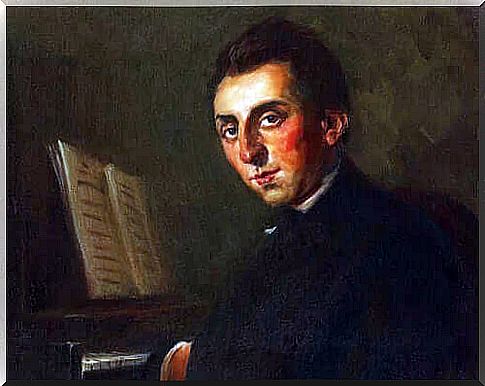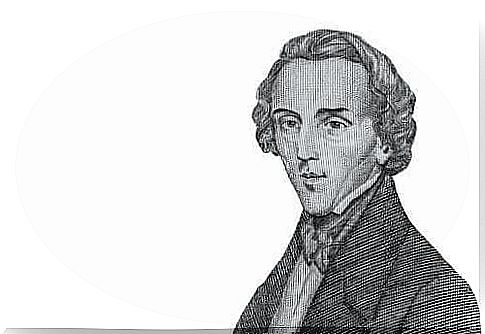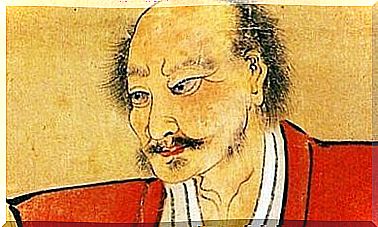Frédéric Chopin, The Poet Of The Piano

Frédéric Chopin was a man with a contradictory personality who combined two great virtues: he was an excellent composer and a sublime interpreter. It was above all for this last characteristic that he was considered by his contemporaries a poet of the piano.
Two issues captured his sensitivity: the love for his country and the passage of women in his life. The first aspect marked his work and his thinking so much that upon his death an autopsy was performed to extract his heart and bury it in Poland.
On the subject of women, Chopin was unlucky for most of his life. Perhaps this depended on his way of being, that is, extremely modest with moral standards and also very shy in love, despite the fact that he adored worldly life.
Although he had a novel romance with writer George Sand, throughout his life he felt more the weight of lack of love than of reciprocated love.
Chopin undoubtedly embodied the values of Romanticism, that movement that enhances self-awareness and patriotism. A movement that invaded all the arts… From literature to music, they were all permeated by the values of freedom, subjectivism and originality.

The early years of Frédéric Chopin
Frédéric Chopin was born in 1810 in a small town called Żelazowa Wola, in present-day Poland, but which at that time belonged to the Duchy of Greater Warsaw. The exact date of his birth is not certain, and two possible dates are being studied: February 22 or March 1.
His father, Mikolaj Chopin, was a teacher of literature of French origin. His mother, Tekla Justyna Krzyżanowska, was related to the nobility, but did not have great financial resources.
Frédéric was the second of four children and the only son of the offspring. The family frequented a prolific cultural environment ; literary and musical evenings were two of their main pastimes. Always immersed in the artistic life, it is not surprising that Chopin soon became interested in music.
It is said that during one of these meetings, little Frédéric was unable to hold back tears upon hearing a performance on the piano. Following this, his parents noted his incredible musical sensitivity.
Thus he began to take piano lessons at an early age. At the age of ten Frédéric Chopin had already written two works, a Polonaise and a Military March. One of his instructors was Elsner, the director of the Warsaw Conservatory, who spoke of him as a genius. Under his guidance he began to show his great innate talent.
The expansion of his talent
Frédéric Chopin was very fond of the popular music of his country. This was precisely the context from which he began to create some of his most beautiful compositions. Perhaps this is why, from the beginning of his work, there is a clear nationalist accent, an aspect that is not surprising in the authors of romanticism.
At the age of fifteen, his first public appearances took place: two benefit concerts in which the Tsar of Russia also participated. From that moment he began to attend court life, he devoted himself to social gatherings and conversations.
At 18 he went to Berlin and at 19 he gave a concert at the Imperial Theater in Vienna, the “Mecca” of the music of the time. At first Chopin did not arouse enthusiasm among the Austrians, accustomed to more visceral and vigorous composers. However, these trips allowed him to forge friendships that would be instrumental in his career.
In the following years he created many of his most famous works. His big dream was to go to Paris, and he realized it at the age of 21. There he found the lifestyle he had always wanted. However, he did not know that he would never return to his beloved homeland again.

A special sensitivity
From the correspondence he had with some close friends, we know that Frédéric Chopin was unhappy in love. First, he fell in love with a woman to whom he was unable to confess his feelings. Later, he bonded with another woman with whom he had a love affair.
However, her family separated them because Chopin had contracted tuberculosis. Curiously, this woman ended up marrying another man with whom she also had a child, but they both died of tuberculosis.
But Chopin’s great love was the writer George Sand, whose real name was Aurora Dupin. She was older than him, divorced, with two children, leading a somewhat dissolute life; despite his moral scruples, Frédéric Chopin fell madly in love with her. The relationship lasted ten years, but was very stormy, as well as stimulating for the musician.
After his separation from George Sand, Chopin fell into a severe depression. Her health, which had always been very fragile, began to deteriorate rapidly. He died at the age of 39, on October 17, 1849.
Frédéric Chopin is considered the greatest exponent of musical romanticism. An author whose musical legacy touches our soul, embraces its culture and nationalism and caresses the feelings.









